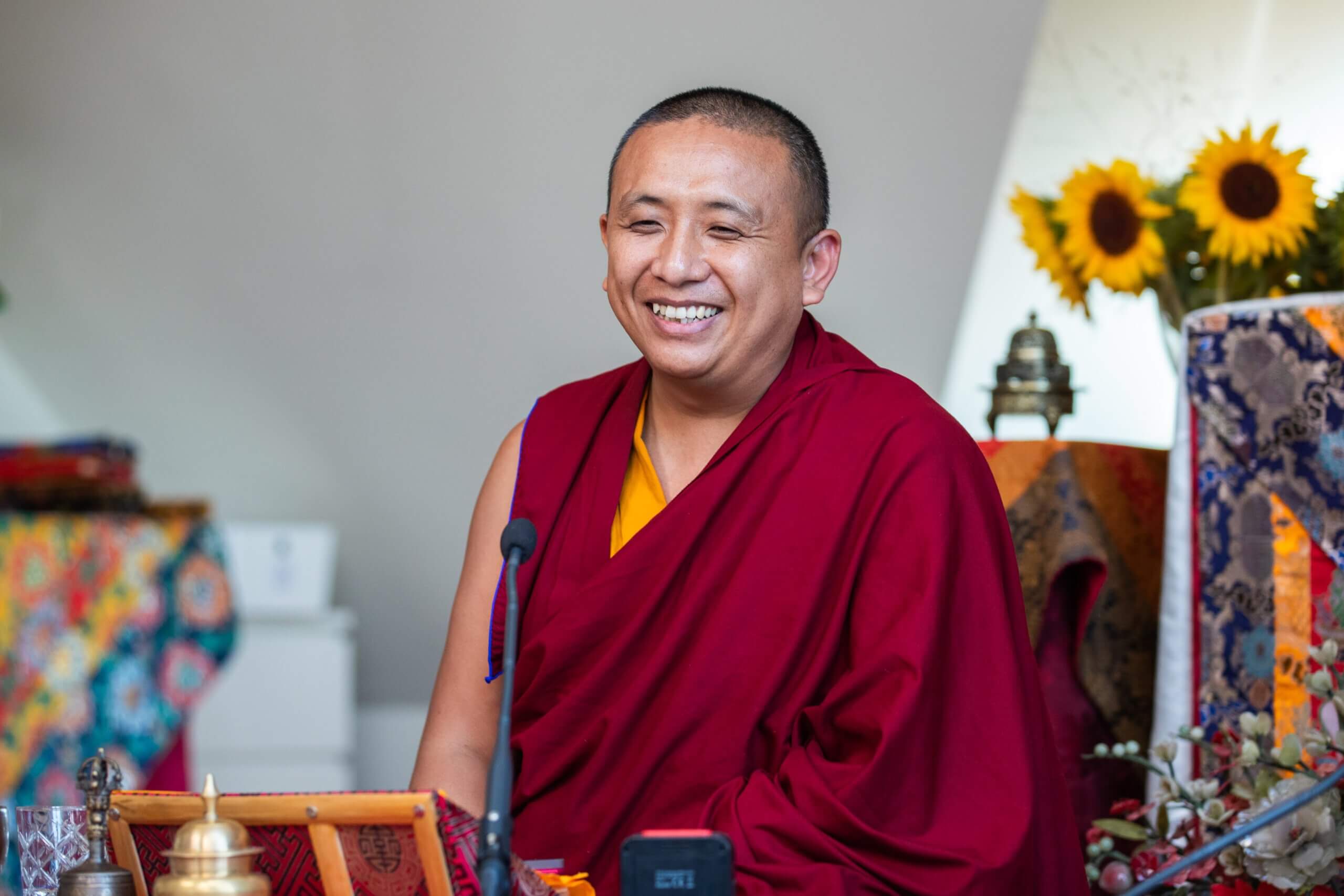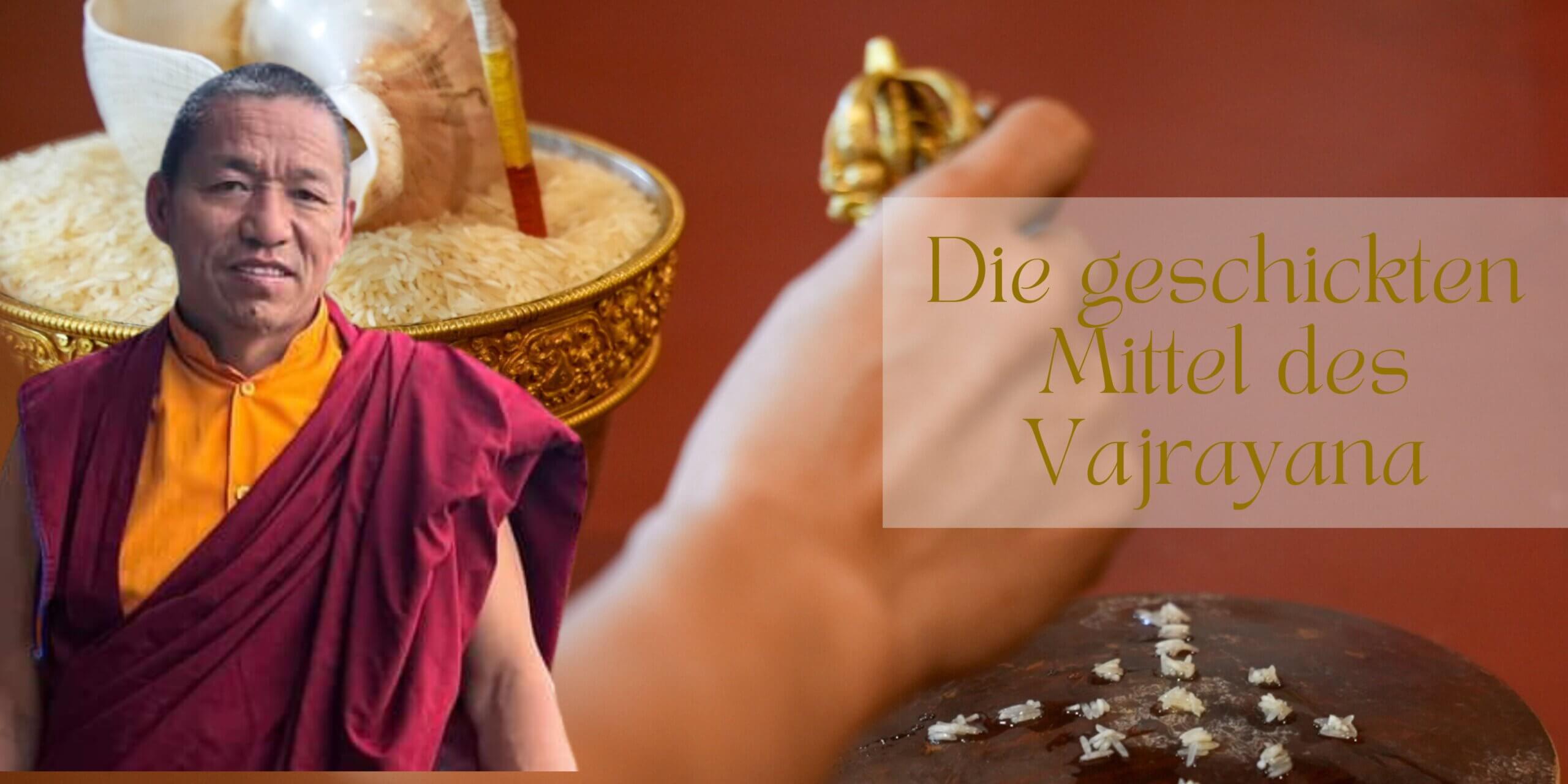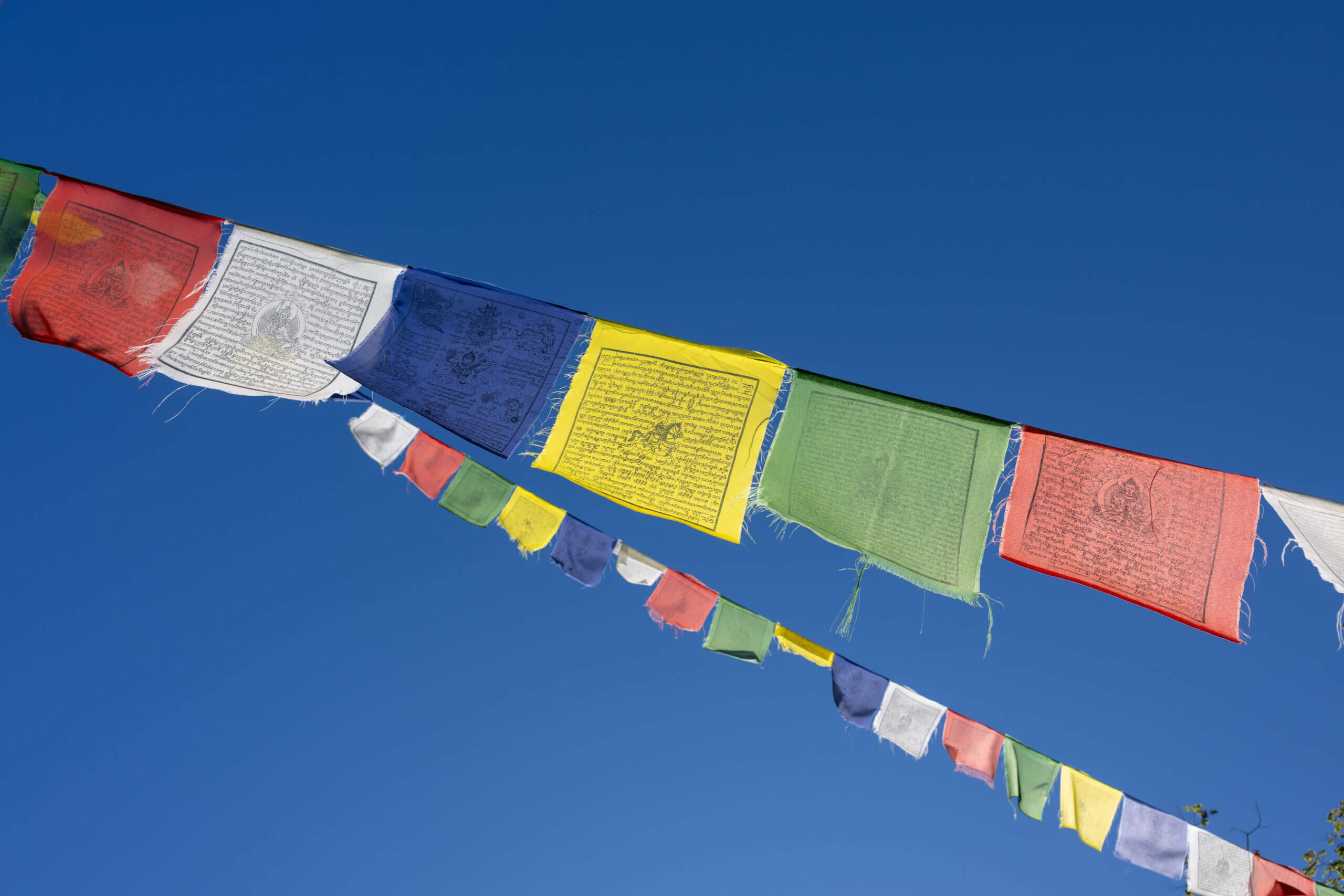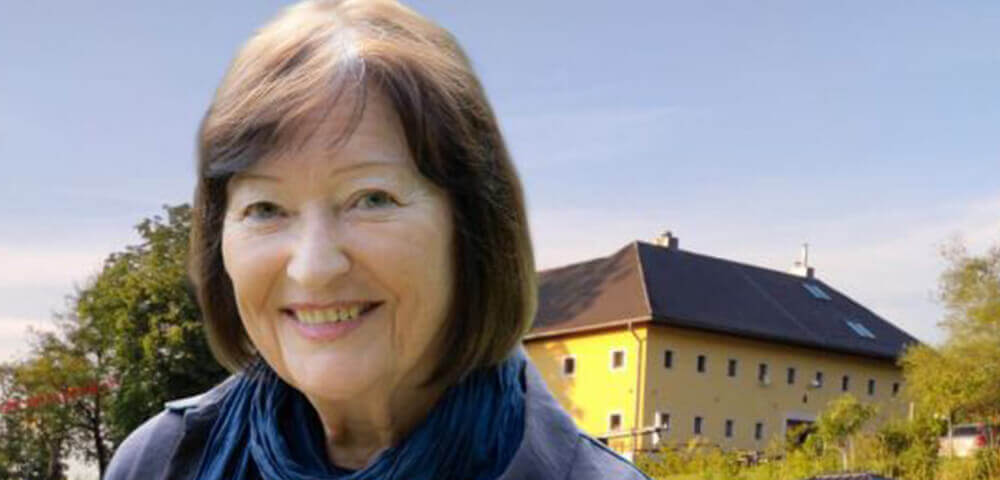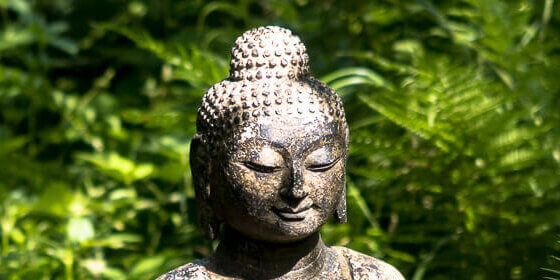Seminare
Veranstaltungen Suche und Ansichten, Navigation
Veranstaltung Ansichten-Navigation
Buddhistische Philosophie und Praxis – Flexible Teilnahme möglich!
Gomde Bäckerberg 18, Scharnstein, Gmunden, AustriaWir sind überglücklich, dass der geschätzte, gelehrte und erfahrene Khenpo Pema Namgyal uns eine Woche lang in Österreich besuchen wird. Wir werden mehrfach Gelegenheit haben, von ihm zu lernen. Er […]
Garten-Seminar
Jetzt buchen In diesem Seminar werden wir gemeinsam die Freuden der Gartenarbeit entdecken. Diese zutiefst erdende Tätigkeit ist noch schöner, wenn sie in Gomde durchgeführt werden kann, um die Schönheit […]
Die geschickten Mittel des Vajrayana – Eine Einführung von Chöpen Buchung
Komme zu einer Erkundung der Vajrayana-Rituale und -Praktiken mit Lama "Chöpen" Buchung in Gomde. Gewinne Einblicke in die zeremoniellen Abläufe des Vajrayana, die von Lama Buchung gelehrt werden. Chöpen Buchung […]
Inneren Frieden finden- Erric Solomon
Nutze die Energie der Feiertage zur Entspannung und Aktivierung von Körper und Geist. Jetzt buchen Als Insel der Ruhe, eingebettet in die oberösterreichischen Berge, bietet Gomde die Möglichkeit, in einer […]
Medizin und Mitgefühl mit Dr. David Shlim
Jetzt buchen Wünschst du dir die Fähigkeit zu besitzen, völlig offen mit Menschen umzugehen und sie wirklich deine volle Präsenz und beste Absicht für ihre Gesundheit und ihr Wohlbefinden spüren […]
Die Suche nach dem Geist- Erric Solomon
Jetzt buchen Termin: 30. Mai - 2. Juni Ankunft:30. Mai, 15:00 Uhr Seminarbeginn: 30. Mai, 4:00 PM Seminarende: 2. Juni, 12:00 Uhr Die Geheimnisse des Geistes und der Leerheit entschlüsseln […]
Ulli Olvedi: Störende Emotionen bewältigen
Jetzt buchen Emotionen haben damit zu tun, wie wir unsere Realität erleben. Insofern sind Emotionen – starke Gefühlsbewegungen – entweder unproblematischer Art, oder sie stören. Störende Emotionen können sehr starke […]
Yoga und Meditation – Körper und Geist im Gleichgewicht
Nutze die Energie des Frühlings zur Entspannung und Aktivierung von Körper und Geist. Jetzt buchen Gönne dir über die Osterfeiertage vier Tage Yoga und Meditation im wunderschönen buddhistischen Zentrum Rangjung […]
Singen und Schweigen mit Claudia Floritz
Eine Zeit der Entspannung und Freude im gemeinsamen Singen von Liedern des Herzens aus der spirituellen Weltmusik.
Ulli Olvedi: Traum-Yoga – Die Energiewelt des Traums entdecken
Jetzt buchen Träumen ist ein besonderer Seinszustand, in dem wir uns auf der Ebene des „Traumkörpers“ aufhalten. Der bewusste Umgang mit diesem Energiekörper gehört zu vielen schamanischen Traditionen, und Traum-Yoga […]

Dharma Aufenthalte
Es besteht die Möglichkeit, die tägliche Praxis in Gomde mitzuerleben und Gomde zur inneren Reflexion zu nutzen. Jede und jeder ist herzlich willkommen, die Atmosphäre der Praxis zu genießen oder selbst zu praktizieren. Du kannst ein paar Wochen in Gomde bleiben oder auch nur einige Tage hier verbringen, je nach Zeit und Lust. Du wirst in komfortablen Einzelzimmern mit angeschlossenem Badezimmer untergebracht und können die schöne Umgebung von Gomde genießen – den Wald, die Gärten, den Teich und vor allem die Kraft der Praxis in der Gruppe.
